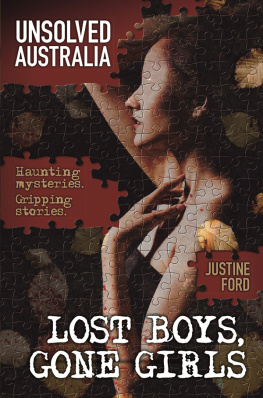Deng grew up happily on his familys banana farm in a fishing village beside the river Nile. One day, when he was six, everything changed.
War was raging in Sudan and the generals were desperate for recruits. Soldiers arrived in Dengs village and dragged him away. For thirty-three days, he marched alongside thirty other children. Some boys were savaged by wild animals. Others were shot. And some boys just fell down dead, unable to carry on without food or water.
Deng made it to Ethiopia, where he was shown how to use an AK-47 and forced to fight for the Sudan Peoples Liberation Army. He was so small that the first time he fired the gun, it tore his arm out of its socket.
During the fighting, Deng saw and experienced unthinkable things, including children being blown up with grenades and others dying from dehydration. Deng himself was severely wounded and almost bled to death.
Somehow he managed to reunite with his brother, John Mac. By hiding Deng under sacks on the back of a truck, John smuggled him to Kenya. From there, the brothers secured passage to Australia, where they hoped to leave behind the brutality of war and start their lives again.
Deng earned his law degree and became a defense lawyer. He now represents many of the Sudanese population in Australia, often for free.
In 2014, John Mac returned to Sudan to try to aid those still trapped there. He died while helping people escape across the Nile River. To make sure John Macs never forgotten, Deng has established a charity in his name. The John Mac Foundation aims to educate and empower people whose lives have been torn apart by war.
If you wrote a poem in the Soviet Union at the beginning of the twentieth century, you may have been putting yourself in terrible danger. The government, ruled by a brutal dictator named Stalin, might ransack your house, kidnap your relatives, and even make you disappear if you wrote anything that spoke against it.
Anna had been writing poetry since she was eleven. Shed never let anything stop her before. When her father said he didnt want his surname connected to her silly scribblings, she started using her grandmothers instead, and then she moved away.
She traveled to St. Petersburg and met a group of other young poets who shared the same ideas and hopes. They wrote together, creating their own movement and magazines, and soon the whole city was talking about them.
Then, when Stalin came to power, people were taken away in the night simply for talking out about the government. Expressing an opinion was forbidden.
Anna hated Stalin and his brutality. So the government filled her house with microphones, stationed spies outside to watch her, and threw the people she loved most into prison.
She was living in terror, and poetry was the only way she had of fighting back. But it had become too dangerous to write poems. Even if you wrote them down and hid them under your pillow, the police might search your house and find the evidence.
To get around this, Anna stopped writing her poems on paper. Instead, she created them in her head then taught them to women she could trust. She would recite them over and over again with her friends, until she was sure someone would always remember them.
Anna would not forget the people who had died, and she didnt want the world to forget either.
You will hear thunder and remember me, she wrote.
After the Soviet Union collapsed, Anna became one of Russias most loved poets.
For a long time, women in Saudi Arabia have struggled to gain the rights given to the men. They werent allowed to vote until 2015, compete in the Olympics until 2012, and still arent allowed to open their own bank accounts.
Until 2017, women were also forbidden to drive. Loujain set out to change that.
She had grown up in a conservative area of Saudi Arabia but moved to France as a teenager. While an adult in Canada, she made videos on an app called Keek, which would allow thirty-second recordings. She posted videos of herself with her face uncovered and her hair flowing free as she drove a car, all of which were illegal for women in Saudi Arabia. Loujain believed that the ability to drive could be the symbol that would give women there more independence and lead to unlocking further freedoms.
Some people criticized her for posting from the safety of a country where the Saudi authorities couldnt reach her. So Loujain flew home. Her father met her at the airport and gave her the keys to his car and she drove, filming the whole thing. The authorities called in her father and made him swear never to let his daughter drive again. Loujain didnt give up.
A few days after her wedding, she drove from Abu Dhabi across the desert to Saudi Arabia and demanded to be let across the border. This time she was arrested and put in jail for seventy-three days. To be released, Loujain had to sign a document saying she wouldnt make any more videos discussing womens rights in Saudi Arabia. She signed it, happily, because the document didnt say anything about speaking out in writing. And she carried on doing just that.
On May 15, 2018, Loujain was once again arrested at her house because of her fight for equality. But thanks to the awareness shes raised about the plight of her countrys women, the eyes of the world are on the Saudi Arabia government, and they are being urged by organizations everywhere to release peaceful protestors and grant women the rights they deserve.


